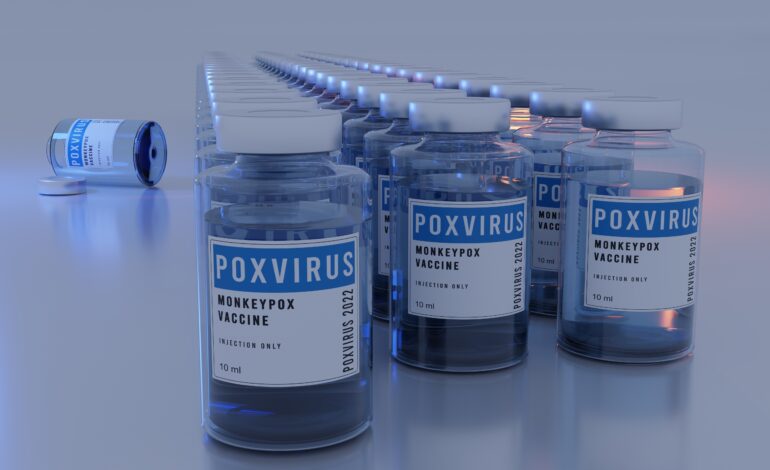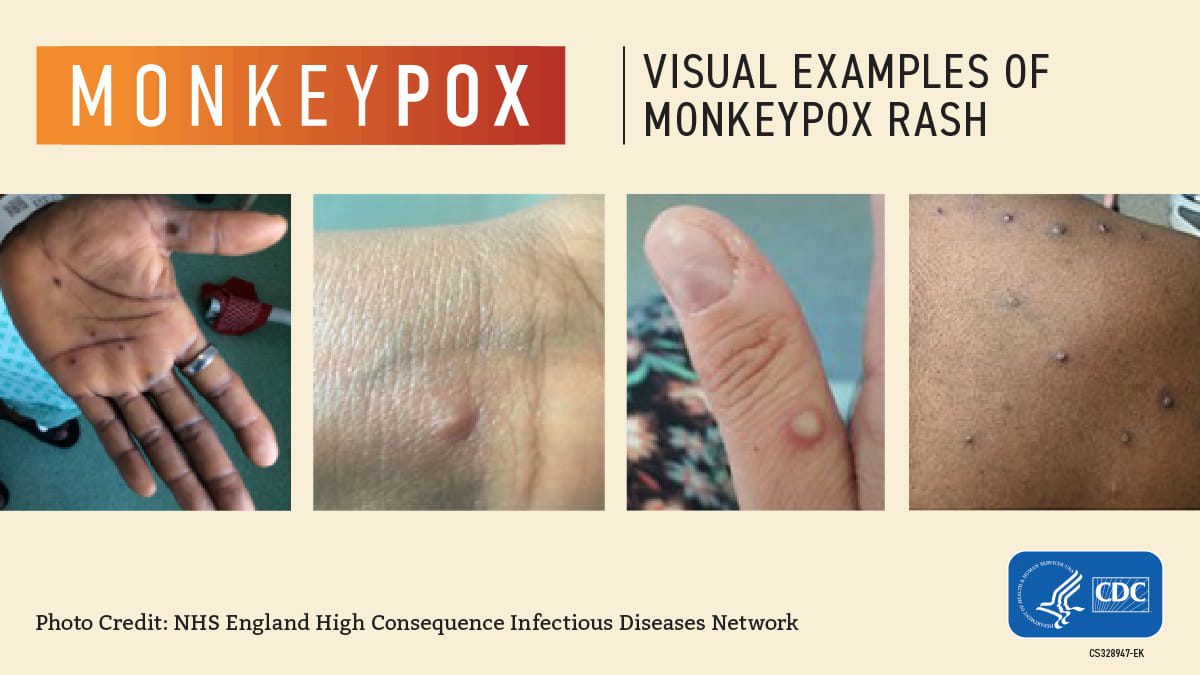Health officials in Michigan are urging residents who have been exposed — or suspect they have been exposed — to the monkeypox virus to contact their local health department about vaccinations.
If you know or suspect you have had contact with someone with monkeypox, please contact your local health department for more information.
The Michigan Department of Health and Human Services (MDHHS) says antiviral drugs and vaccines developed to protect against smallpox can be used to prevent and treat monkeypox infections.
The department says it wants to ensure people with the highest risk from severe monkeypox disease have access to the vaccine, which is in limited supply.
“We have issued guidance to our local health department partners to help ensure those most at risk from MPV are prioritized,” said Dr. Natasha Bagdasarian, MDHHS chief medical executive. “Michiganders who know they have been exposed to MPV or suspect they have been exposed should contact their local health department about getting vaccinated.”
Monkeypox is a disease caused by infection with the monkeypox virus. Monkeypox is in the same family as the variola virus (which causes smallpox), vaccinia virus (used in the smallpox vaccine) and cowpox virus. While both diseases may appear similar, monkeypox is not related to chickenpox.
The CDC recommends the vaccine be given within four days of exposure to someone with high risks for the best chance to prevent onset of the disease. If given between four and 14 days after the date of exposure, vaccination can reduce the symptoms, but may not prevent monkeypox.
The state has a new website that tracks monkeypox infections in counties and has the latest available information regarding treatment, signs and symptoms, at Michigan.gov/mpv.
As of Thursday, July 28, Wayne County only had one case of the disease, while Detroit had 10. Oakland and Macomb Counties had seven and five cases respectively.
The state says it is using all available vaccine as first doses during its first allotment of the vaccine. Second doses will be provided when more vaccine is available.
Michigan has received more than 3,800 doses of the vaccine, which was distributed to hubs that will redistribute the vaccines to other areas of the state as needed. Hubs are located in Detroit and Oakland, Washtenaw, Kent, Kalamazoo, Ingham, Genesee and Grand Traverse Counties.
Right now, health authorities are using strategies that include vaccinating individuals following intermediate or high-risk exposure to monkeypox to prevent illness; and vaccinating individuals with risk behaviors in areas, settings, events or venues with known monkeypox transmission in the last 14 days.
The CDC recommends the vaccine be given within four days of exposure to someone with high risks for the best chance to prevent onset of the disease. If given between four and 14 days after the date of exposure, vaccination can reduce the symptoms, but may not prevent monkeypox.
Local health departments can initiate contact with eligible individuals who have been identified as close contacts to a monkeypox case about receiving the vaccine.
Monkeypox can spread to anyone through close, personal often skin-to-skin contact, including:
- Direct contact with monkeypox rash, scabs or body fluids from a person with monkeypox. It is believed this is currently the most common way that monkeypox is spreading in the U.S.
- Through contact with someone with monkeypox during common activities such as sex, hugging, massaging, kissing and prolonged face-to-face contact
- Touching objects, fabrics (clothing, bedding or towels) and surfaces that have been used by someone with monkeypox.
- Contact with respiratory secretions.
- When interacting with other people, including groups at large events, consider how much close, personal, skin-to-skin contact is likely to occur at the event you plan to attend. If you feel sick or have a rash, do not attend any gathering and see a health care provider.
More information is available on the CDC website.
Persons experiencing monkeypox symptoms should contact a health care provider for evaluation. The CDC is urging health care providers in the U.S. to be alert for patients who have rash illnesses consistent with monkeypox, regardless of whether they have traveled or have specific risk factors for monkeypox and regardless of gender or sexual orientation.
While many of those affected in the current global outbreaks are men who have sex with men, anyone who has been in close contact with someone who has monkeypox can get the illness.








Leave a Reply